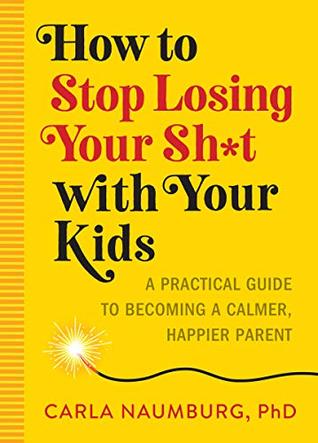More on this book
Community
Kindle Notes & Highlights
Read between
July 19 - July 31, 2020
Over time, your explosions will literally rewire your brain, and not in a good way. The more you lose it with your kids, the stronger and more connected your “lose it” neuronal pathways will become, allowing your brain to freak out more quickly and easily in the future.
We’re demonstrating the very behaviors we’re trying to decrease and we’re modeling a relationship style we surely don’t want them to repeat later in life.
You’re doing an incredibly hard job, and you’re doing it without the right information, support, resources, and rest.
I talk about this with the parents I work with all the time. I remind them over and over again that raising children is insanely hard and that (a) it’s not their fault that it’s hard, and (b) they need to start doing what adults do in tough situations, like taking care of themselves and getting some help.
For the purposes of this book, a trigger is anything that makes it more likely that you will lose your shit with your kids. It does this by making your buttons bigger, brighter, and more sensitive to pushing.
hinging our sanity and functioning on someone else’s insane behavior is a losing proposition.
The reality is that kids will always do stupid shit, and they will always push your buttons. You're unlikely to change that. Your job is to take care of your buttons as much as you can and to stay as calm as possible when your kids get to them.
It’s not developmentally appropriate to expect children to behave well all the time.
The more frequently your buttons are triggered and pushed, the more quickly and easily they will be pushed in the future.
Multitasking while you’re with your kids.
I realize this is a lot to dump on a busy parent’s plate, so for the sake of your sanity, we’ll start with four nonnegotiables: single-tasking, sleep, support, and self-compassion.
Stress is the belief, feeling, or thought that we cannot handle whatever is happening.
Our children don’t need us constantly by their sides. That sort of continuous attention can feel intrusive and irritating. Rather, they need us to attune to their needs, to notice when they’re calm and happy and want to be left alone, or when they’re struggling and can figure it out on their own, as opposed to when they actually need our help. This sort of thoughtful responsiveness requires us to slow down, get out of our own heads, and remember that a strong relationship isn’t about unwavering connection. It’s about noticing what your child needs at this moment, what you need, letting your
...more
You’re always practicing something, even if it’s something you don’t necessarily want to get better at.


